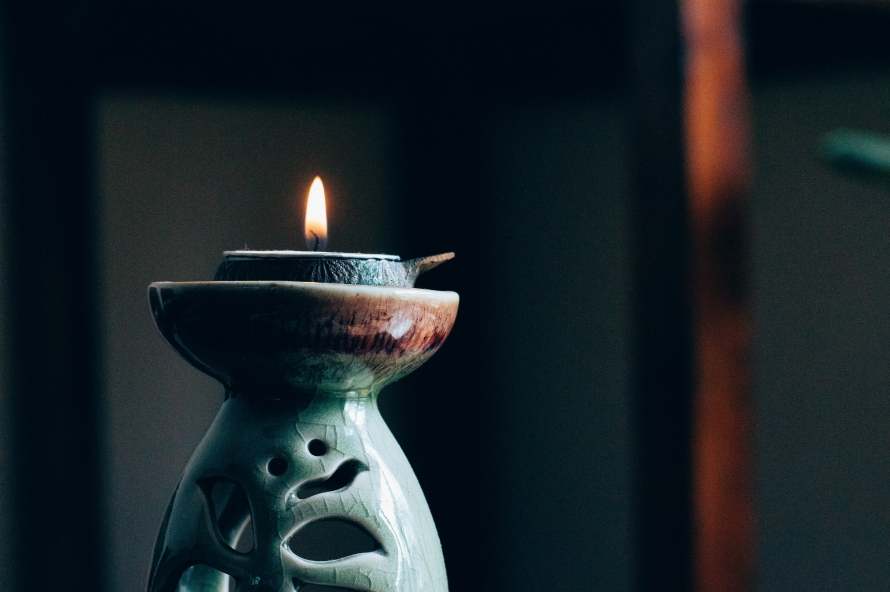Here’s Why You Need Spirituality in Your Life

Have you ever felt a connection above and beyond yourself? A truly spiritual person embodies such connections. Further, they rest faith in the universe which keeps them driven and motivated. Alongside, there are daily rituals they follow, such as journaling and expressing gratitude. Spirituality, thus, is both a belief and a practice. It truly becomes a way of life once you practice these together.
Spirituality, in essence, suggests that there is more to life than sensory and physical experiences. There is rather a force that not just connects human beings with each other, but the wider universe too. There are various other questions that come with this force. Is there life after death, for instance? Further, what is the meaning of life? In summary, it questions the reasons of human existence.
Both Ayurveda and spirituality can reassure and comfort you. In other words, it induces calmness and stress relief. Most people follow a certain god or faith to guide their spiritual journey. However, be sure to choose a model only if it suits you – remember that not everyone follows the same path. Irrespective, you will notice remarkable effects on your mental and physical states when you embark on this path.
The Need for Spirituality
There is no single method or belief to becoming spiritual. However, those who live spiritual lives foster feelings of empathy, awareness, compassion, wisdom and acceptance. Similarly, they carry goals of mindfulness and perseverance in their daily lives. Thus, this may either manifest as a connection with a higher power, religious practice, humanity at large, and/or the natural world. Above all, there lies curiosity and feelings of connection.
First, spirituality probes into deep questions of existence. Why do people suffer, for instance, and does there exist life after death? By asking these, you develop love, empathy, and such emotional connections with your fellow human beings. Further, you wish to expand these feelings beyond yourself to make the world a better place. In summary, you seek wellness of both yourself and your community.
Second, spiritual needs go beyond material or external rewards. In other words, you no longer find the same pleasure in money or fame. Instead, you seek feelings of awe and wonder in the world around you through a frugal and modest existence. To clarify, you do recognize the importance of meeting your physical needs. However, your deeper needs lie elsewhere – which you are on a spiritual quest to find.
Most importantly, remember to not superimpose feelings of spirituality on others. We experience these in our own ways at differing points in our life. For instance, while some may experience this in a mosque or church, others may feel this connect within nature. Remember to extend support and presence, irrespective of how and when they practice their spirituality.
Psychological Benefits
There are a variety of reasons why people turn to spiritual practices. First, it helps find one’s purpose and meaning. This helps them uncover smaller actions holding them back and redesign their life accordingly. Second, it helps to cope with stress, anxiety, and depression. These are especially common even in a work and school going age.
Thirdly, and along similar lines, it restores hope and optimism. This is essential to maintaining sustainable and stable long-term health. Forth, you find a community of like-minded individuals who bear similar hopes and goals. This satisfies your need for solidarity through a social support system.
Religion is a key example of community-driven faith. From Buddhism to Christianity, religions range from conservative to secular on the spectrum. In other words, these are vast and varied in inclusion of both traditional and indigenous practices as well. These can especially heal those who have undergone the effects of colonialism. Further, they unite you to a culture or ethnic group which the religion serves.
Physiological Benefits
Spirituality holds powerful effects to your immune system and longevity. Further, it reduces the chances of stress and inflammation. It ultimately induces calmness and peace of mind, and even acceptance of death. There are multiple scientific studies which confirm these benefits.
First, research shows that spiritual practices can lower daily stress levels. For instance, daily practice amongst adults induces positivity and a ‘can-do’ attitude, regardless of what the day has in store. Secondly, another study affirms that older women have high gratitude levels toward god than their male counterparts. Thus, they receive higher stress-busting health effects.
Finally, a third research study shows those with intrinsic religious orientation are less reactive to stress. These people dedicate their lives to a higher force such as god. In contrast, those with extrinsic orientation focus more on social ties. In sum, both of these boost happiness levels.
You can witness such benefits best with long-term spiritual practices. Prayers, for instance, is a practice which soothes for both young and old populations. This correlates to lesser depression, hypertension, and stress, as well as better stress handling abilities. Further, it can enhance positivity and psychological wellness.
Spirituality 101
Perhaps you want to reinforce existing spiritual practices in your own life. Alternatively, you may want to try out a spiritual path for the first time or rekindle forgotten practices. Thankfully, there are simple spirituality tips for you can try. Be sure to incorporate such practices in your routine. Above all, strive for consistency – this is the only method to reaping the benefits.
First and foremost, direct your energy inwards. In other words, pay closer attention to your feelings. In the process, you embrace your humanness, with all its positive and negative waves. This is the first step towards active inculcation of love and respect.
Second, spread the positive energy onwards. This is to say that you can now form connections beyond the self. Open your heart, feel empathetic, and most importantly, be vulnerable. This is the key essence of spirituality.
Third, practice mindfulness. This simply translates to greater awareness of yourself and surroundings. Similarly, you become more appreciative of the present. You can thus focus on the present moment rather than the past. Further, you will find yourself becoming less judgmental.
Takeaways
Spirituality nourishes both the body and soul. Meditation, mindfulness, and gratitude, for instance, are significant tools to revitalize the body and brain. Further, it can ward away depression and long term disease. However, none of these benefits are immediate. Thus, focus on making spirituality a way of life rather than a task to holistically reap your goals. Take the first step today with some basic spiritual awakening tips.








